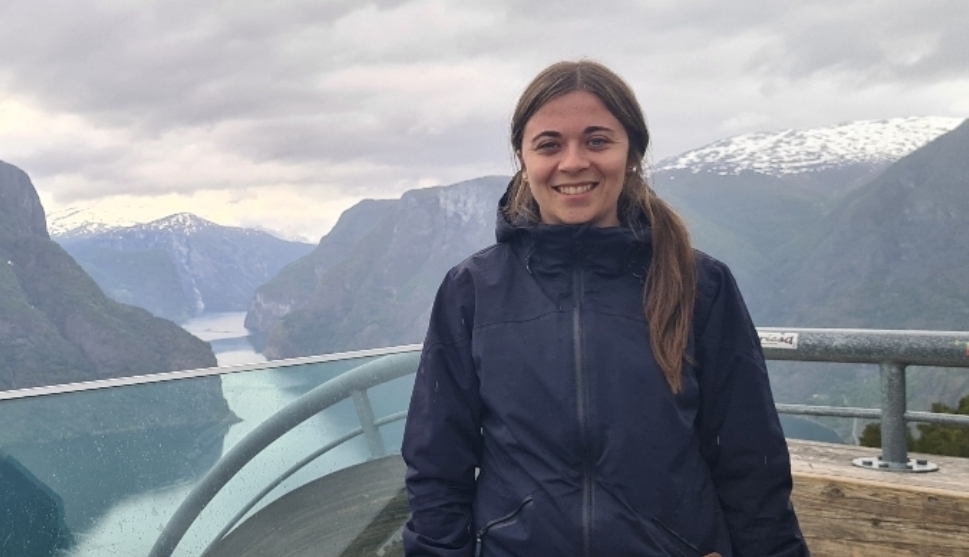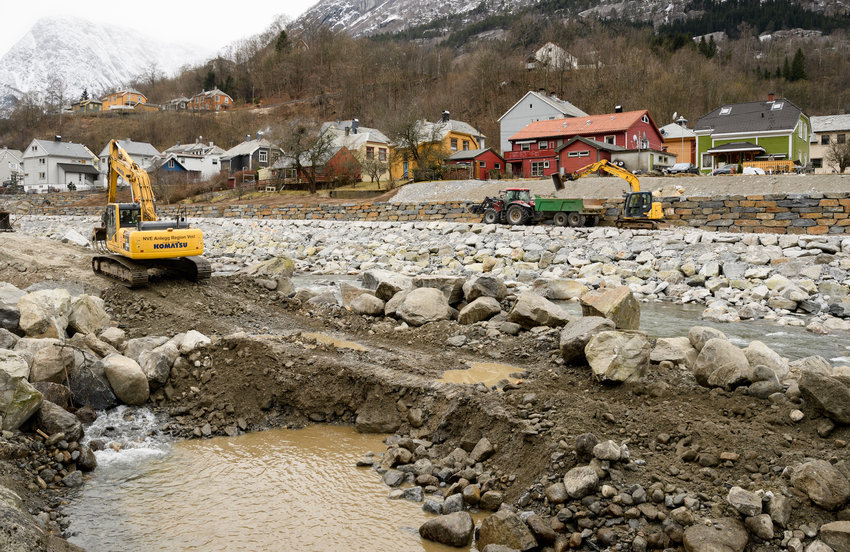«Five questions » is a series that gives you insight into the people who work with and around Climate Futures. In the following, you will get to know Thea Roksvåg, who works as a researcher at the Norwegian Computing Centre.

Can you tell us a bit about your background?
I am a civil engineer, educated from NTNU where I specialised in statistical modelling. My master’s thesis was related to estimating average precipitation and runoff in areas where there are no local observations. I thought this was so interesting that I continued with a PhD on the same topic, which gave me 4 new years in Trondheim. In 2020 I moved to Oslo and started working as a scientist at the Norwegian Computing Centre.
What is your role at NR?
I have a research position at the Norwegian Computing Centre. At NCC we have projects within a number of different fields, but I mostly work on projects connected to weather and climate. So far I have worked with water flow forecasts, seasonal forecasts for temperature and statistics for precipitation extremes.
In what way are you/your organisation involved in Climate Futures?
The Norwegian Computing Centre is one of the research partners in Climate Futures. We contribute with statistical modelling, mainly within the Renewable Energy node and Sustainable Food Production node. I myself have been mostly involved in the Sustainable Food Production node where I develop seasonal forecasts for fruit-, grain- and vegetable producers. At the moment we are working on a frost forecast and a forecast for heat sum aimed at estimating when a crop is ready for harvest.
What do you like best about your job?
What I especially like about the seasonal forecast projects in the Sustainable Food Production node is that we cooperate closely with the producers for which we develop the forecasts. The food producers give us insight into which decisions are made based on weather and they give us feedback on the forecasts. This is really motivating for the work we do, and it is fun to work so interdisciplinarily.
What possibilities do you think can come out of Climate Futures?
Climate Futures will give us a better understanding of how far into the future we are able to predict different weather processes. Our projects will also result in a number of examples of how climate information and long-term forecasts can be used for decision-making within different sectors, and consequently set a standard for how to account for climate risk in practice.

